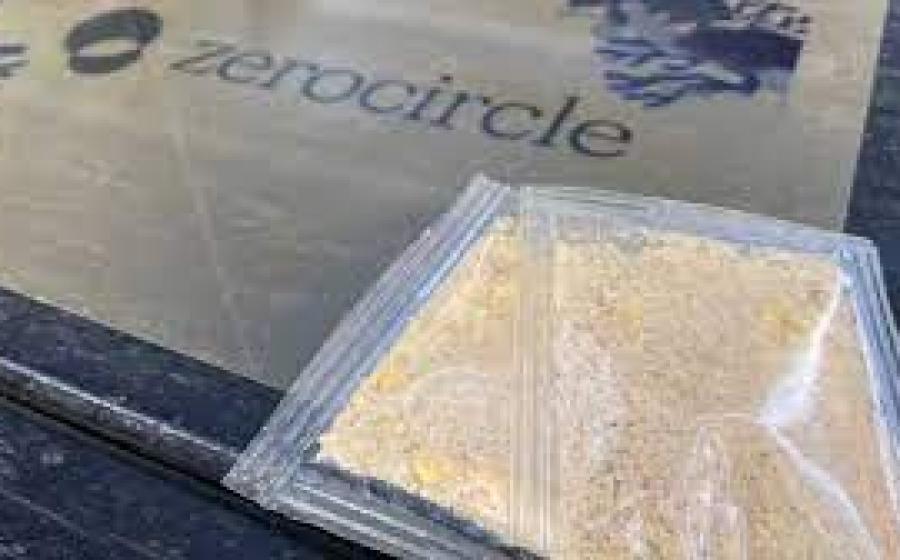
While efforts are on globally to cut plastic use and to ‘reduce, reuse and recycle,’ United Nations Environment Programme data shows that global production of primary plastic will touch 1,100 million tonnes by 2050. In the face of this, a Maharashtra-based start-up founded during the COVID-19 pandemic is developing an innovative solution to India's problem of plastic pollution. Their sustainable invention employs an unconventional alternative to plastic for packaging purposes: seaweed.
ZeroCircle, founded by former Google employee Neha Jain, recently won the second prize in the Tom Ford Plastic Innovation Prize, a global search for sustainable alternatives to plastic. ZeroCircle was the only company from India and Asia to win the award. The winners of the competition have been awarded a collective $1.2 million prize as cash and investment.
Their innovation — an alternative to fossil fuel-based thin-film polybags using seaweed — can be used for packaging and the company has already created several prototypes such as a carry bag for groceries, dissolvable tea bags, edible burger wrappers, edible soup sachets and packaging for clothes and apparel.
Why seaweed?
Jain, while talking to CNBC-TV18, said that while several companies across the globe are working on making sustainable ocean-safe materials, most of them come from a land-based source such as potato starch. The problem with these bio-based materials is that they convert what could be food into single-use plastic. Furthermore, these bioplastics are marketed as compostable when, in reality, they are only industrially compostable in a factory environment with high heat, energy and humidity.
"So all these bioplastics that you see in the market which says, 'This is not plastic. I am compostable' — It's a huge greenwashing that's happening," Jain said.
This is where seaweed comes in. A type of algae that only grows in marine water, seaweed doesn't require any resources such as land or freshwater to grow. ZeroCircle's alternative material made out of seaweed biologically breaks down in the environment, is marine degradable, home compostable and bio-digestible — safe for consumption, in simpler words.
Gearing up for the launch of the first product
Jain said that the company is in the pre-production stage and is setting up a commercial facility in Pune. Backed by Sequoia Spark, Rainmatter Foundation and Marico Innovation Foundation, ZeroCircle was initially incubated by Nestle's research and development branch during its starting months in 2020.
ZeroCircle hopes to launch its first product — a coating for paper — in September. All pieces of paper have a coating, usually made out of plastic. The startup hopes to replace that with a sustainable alternative. They are also working on producing seaweed pellets, which are building blocks used in machines to make films.
The startup has validated the prototype for its seaweed-based material from the market and is in talks with about 100 brands that are waiting for the product's release.
The company is also making seaweed paper as regular paper has synthetic additives, making it ineligible for composting. Furthermore, ZeroCircle uses green and clean chemistry to make the paper, making the production process not "dirty" as well.
Jain explained that ZeroCircle has embarked on a journey to create a new type of material with its invention — the technology of which could take years to reach a certain level of product readiness. Even with the prototype ready, the startup is now focused on creating the material at a speed that is commercially viable for the brands it's talking to.
Although she expects some hesitancy from brands over using new materials such as their product, Jain said that companies in India, US and Europe, have shown enough willingness to work with ZeroCircle.
Possible road bumps ahead
Whilst in its pre-production stage, ZeroCircle has its target set on production readiness to roll out its material. However, scale and volume are of key importance here. The startup's scale of production needs to match the packaging demand of the brands they are looking to collaborate with based on the consumption patterns of buyers.
Furthermore, in India, there is no policy right now on home compostability. All bioplastics which are marketed as compostable in India currently end up in landfill because there are no industrial compositing sites. The difference in regulation from country to country also makes it harder for larger multinational companies to create a standardisation of the materials in their packaging.
Another issue is affordability. Jain noted that while there is a global shift away from fossil fuels, the US and Europe are more likely to pay a higher price for non-plastic materials. However, in India, the question is of how much higher is a company willing to pay.
The inspiration behind ZeroCircle
Founder and CEO Neha Jain has a background working in tech companies such as Google before starting her own journey in climate solutions. She soon realised that the ocean is the Earth's biggest saving grace when it comes to climate change, as it is one of the largest carbon sinks and absorbs a massive amount of carbon dioxide.
However, the oceans are dying because of pollution, particularly marine litter and marine pollution caused by plastics.
ZeroCircle's innovative solution to this problem is something to keep an eye out for as it could prove to be a significant step forward in the fight against plastic waste. The company's commitment to producing a new type of bioplastic and its recent achievement on the international scale is a testament to India's capability of creating a better future for the world.



